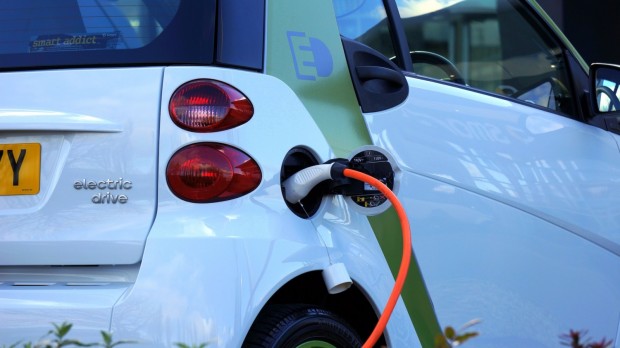
(Photo: Mike B)
There's no question that electric vehicles are the future of transportation. They're more environmentally friendly and they offer many benefits over gas-powered vehicles, but there is one drawback right now and that is that charging can be a challenge on the go. Since many regions still struggle to meet the growing demand for electric vehicles, it means that you'll need to do some extra planning and even make sure to follow best practices for keeping your EV battery charged up and ready to go. Here's what you can do:
Charge up Earlier in The Day
If you're planning on driving your EV out of town, make sure to charge up early in the day. The longer your trip, the more important this becomes. If you know batteries, you know that charging time can vary based on many different factors including the size of the battery and the power capacity. If you want to go as far as possible without getting stuck somewhere without a charging station, then it makes sense to charge up early, or even overnight. There are plenty of EV charging solutions that can ensure you get a full charge before you go anywhere.
Let the Battery Cool Down Before Charging
When it comes to charging an EV, one of the first things you should do is let the battery cool down. The temperature of your vehicle's battery has a significant impact on how quickly it can be charged. This relationship between temperature and charge time is affected by other external factors like ambient air temperature as well as internal factors like battery age and condition. If you try and charge while the battery is too hot, it could overheat, and stop charging until the battery is cool enough.
Try to Avoid Extreme Hot Temperatures
When you're traveling, it's important to know how to get the most out of your electric vehicle charge. The first step is to make sure that your battery can handle the extreme temperatures where you are going and what kind of charging infrastructure is available there. If you go to a location with extreme heat, it's even more important to charge your vehicle at night when outside temperatures won't interfere with your car's ability to charge.
Don't Park With 0% Charge
Another important thing to consider is that you should not leave your vehicle without any charge for long periods of time. You may be tempted to park your vehicle with 0% charge, but this is not recommended. Doing this too often can degrade the battery and reduce its capacity over time.
Use Multiple Charging Stations
When you're traveling, it's important to know where you can charge your electric vehicle. When you stop for lunch or need to walk around for a few hours, find a charging station in each spot. Using multiple charging stations can ensure that you get more battery juice before you head onto the road again to enjoy your road trip.
Stay at Hotels With Charging Stations
Another way to get the most out of your electric vehicle charge when you are on the go is to stay at hotels that have charging stations. This means that whenever you are at the hotel, you can easily charge up while you swim in the pool, eat dinner, or watch a movie. This can help you get the most out of your battery charge when you travel so you don't risk getting stranded between your home and your destination.
Bring an Extension Cord With You
Don't forget to pack an extension cord. You never know how far from your car the EV charging station will be. Having an extension cord on hand ensures that you can get the most out of your battery and charge up when needed no matter what the option looks like and how far it is from your car.
Use Fast Charging Sparingly
Fast charging is great every now and then, but over time, it can degrade your battery reducing the charge and decreasing the lifespan of the battery. Fast charging is good when you're in a bind, but it's not necessarily the best option long-term.
Use Apps to Find Charging Stations
Another way to get the most out of your battery charge when you are traveling is to use apps to find the best charging stations. There are many apps that can help you find charging stations, not only on your phone but also in an app on your car's dashboard. Some of these apps will even tell you how much time it will take for your vehicle to charge and if there is any parking available at the station.
This article is copyrighted by Travelers Today, the travel news leader
* This is a contributed article and this content does not necessarily represent the views of travelerstoday.com



